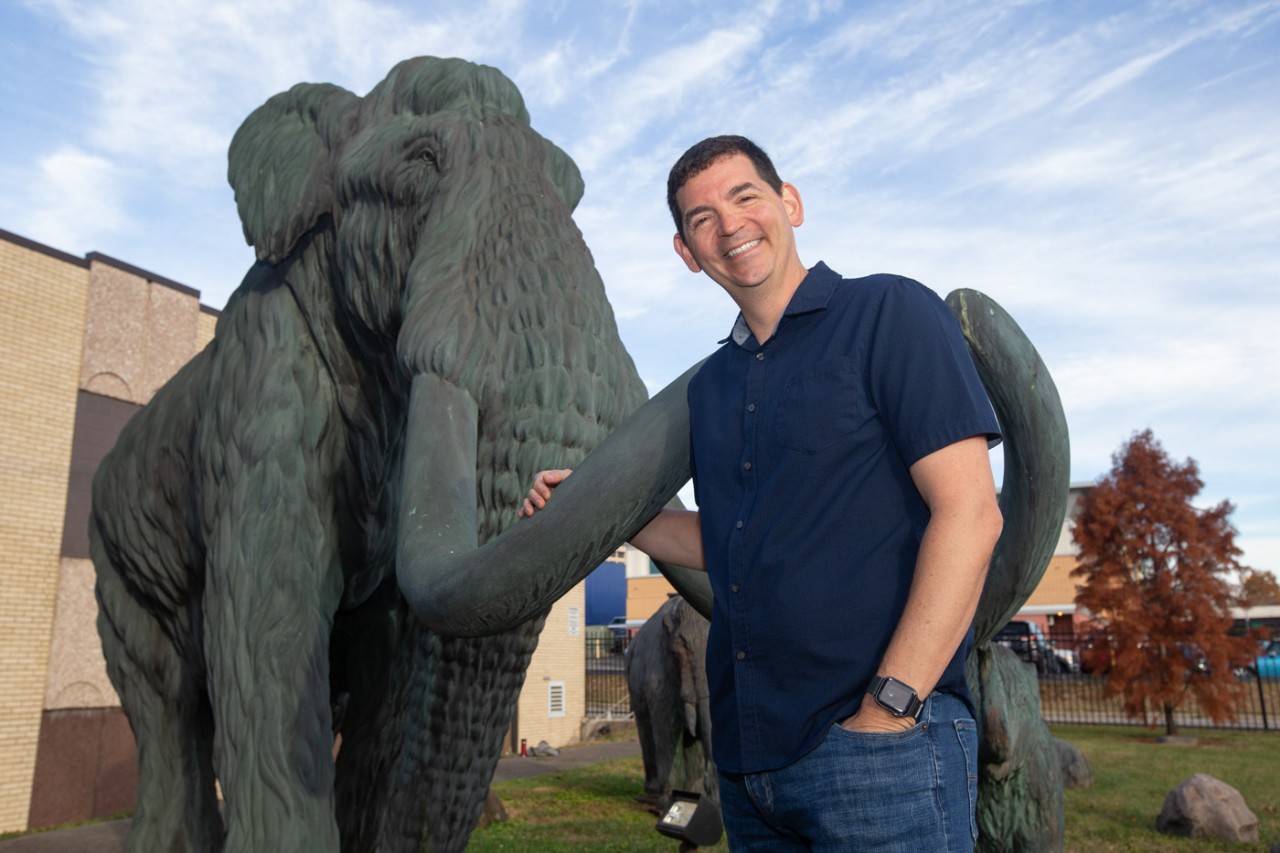
Last woolly mammoths offer clues to why they died out
UC geosciences professor discusses inbreeding in Earth's last mammoths
Science News Explores turned to a University of Cincinnati geosciences expert for context about a new study examining a genetic bottleneck in the world's last woolly mammoths.
Researchers from Stockholm University examined the genetics of remains from mammoths found on Russia's Wrangel Island, home to the last living population of the elephant-like leviathans of the Ice Age.
They found that the mammoths initially suffered from genetic mutations from inbreeding, but the population recovered within a few generations and remained stable. This suggests inbreeding may not have led to their extinction on the island.
UC College of Arts and Sciences Assistant Professor Joshua Miller told Science News Explores the study was remarkable. He was not part of the investigation but uses the latest scientific techniques to study mammoths and other prehistoric animals.
Miller said the study offers more clues to explain the demise of mammoths on Wrangel Island and offers promising insights into helping endangered species today using similar genetic tracking techniques.
Miller has trekked across the Arctic National Wildlife Refuge to study both historic and present migration patterns of caribou. And he uses tools such as isotopic analysis to answer questions about prehistoric animals.
Read the Science News Explores story.
Featured image at top: UC Assistant Professor Joshua Miller stands in front of a bronze statue of a mammoth outside the Cincinnati Museum Center's Geier Collections and Research Center. Photo/Andrew Higley/UC Marketing + Brand

UC assistant professor Joshua Miller examines a mammoth tusk in the Cincinnati Museum Center's Geier Collections and Research Center. Photo/Andrew Higley/UC Marketing + Brand
Related Stories
Last woolly mammoths offer clues to why they died out
August 26, 2024
UC geoscientist Joshua Miller talks to Science News Explores about a new study on a genetic bottleneck in the world's last woolly mammoths on Russia's Wrangel Island.
Smithsonian: How conservation paleobiology helps restore ecosystems
August 17, 2023
UC Assistant Professor Joshua Miller tells Smithsonian magazine about how he and his research partners tracked ancient caribou over 3,000 years and across hundreds of miles of Arctic tundra.
Children learn about UC science, engineering majors during visit
February 19, 2025
Students from the Clifton Area Neighborhood School visit UC to get an introduction to subjects such as science, Classics and engineering.
